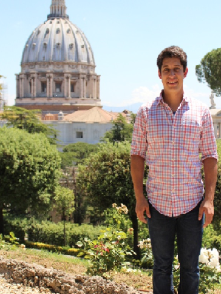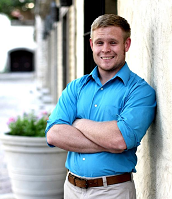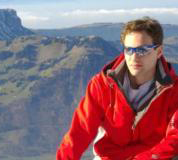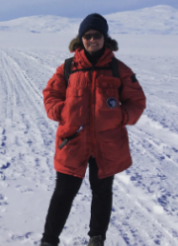Michael Hoff, B.S. 2015:

After graduating with a double-minor in Applied Mathematics and Computer Science along with his Physics degree, Michael went directly to grad school at the University of California Los Angeles in the subsequent Fall. There he completed an M.S. in Electrical Engineering in 11 months, including the publication of an original-research thesis on CMOS optical signal modulation. He now works as a Research Engineer in the Photonics and Advanced Computing division of Lockheed Martin's Advanced Technology Laboratories. He is an avid reader, pianist, and basketballer, and hopes some day to start his own company.
Zach Santonil, B.S. 2014:

After graduating from the University of Dallas, Zachary received a master's of science degree in electrical engineering from the University of Notre Dame. He currently works at a top U.S. space and defense contracting company where he is responsible for RF, microwave, and millimeter-wave electronics as well as optoelectronic hardware operating from the IR telecommunications band to technologies in the visible spectrum.
Matthew Melendez, B.S. 2014:

Collin Lueck, B.S. 2010:

I graduated in Physics from UD in 2010. After UD, I went to medical school at University of Southern California, graduating in 2015. I'm living in Los Angeles and I'm now in my second year of residency the four years of specialty training after medical school) in Psychiatry. I have so many fond memories of studying physics at UD! I remember my good long study hours in the physics lab, as well as fun things like freezing various food items in liquid nitrogen. Physics at UD always felt like a family and I loved being part of it.}
Peter McDonough, B.S. 2010:

Will Spearman, B.S. Physics, B.A. Mathematics 2008:

While an undergraduate at the University of Dallas, I worked at Texas A&M University for a summer doing research in quantum optics. In addition, I participated in an REU hosted by the University of Michigan which took me to CERN for a summer. Both were fabulous experiences which really helped me explore physics and hone my interests. Furthermore, the University of Dallas coursework prepared me to conduct research and enter graduate school. Ultimately, however, it was the friendships I formed with my professors and the advice and support which they gave me which truly set the University of Dallas apart from the many other places where one could pursue an undergraduate degree in physics. This one-on-one support gave me a leg up and a strong advantage in this challenging and competitive field. I am both lucky and proud to have graduated from UD.
Stephanie Wissel, B.S. 2004:

While at UD, I attended a summer course in Bamberg, Germany in which I studied German language, literature, and culture. I also participated in three Research for Undergraduates (REUs) in which I worked for scientists at various institutions. These were valuable experiences in that I was able to investigate different areas of current physics research.
The University of Dallas Physics Department is unique in that the small class sizes and dedicated professors encourage an atmosphere of investigation in physics. I was able to develop a personal relationship with my professors, something which helped aspire to a career in academia. One of my favorite memories of the UD Physics Department was simulating avalanche behavior in sand for Dr. O's computational physics course as well as the numerous projects and presentations throughout the physics curriculum.